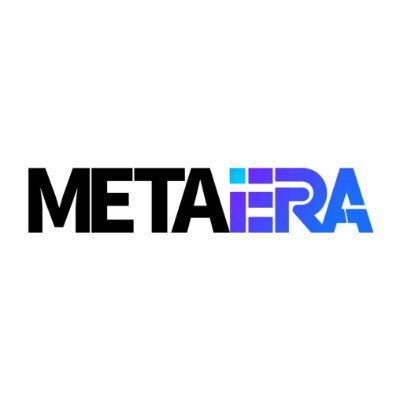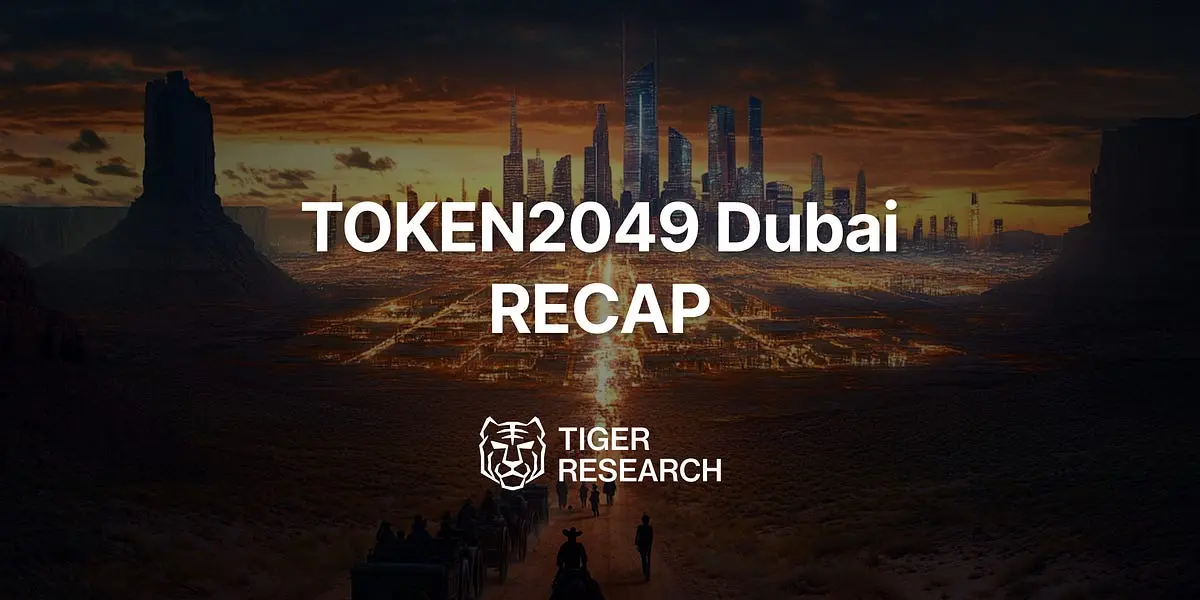Meta Era successfully organized the Web 3.0 Open - Meta Era Reunion in Dubai summit, envisioning new possibilities for Dubai's digital economy
Author: Meta Era

The "Web 3.0 Open - Meta Era Reunion in Dubai," co-hosted by Web 3.0 Open, Meta Era, BitMart, CertiK, WSPN, and Huawei Cloud, and sponsored by Distributed Capital, Amber Group, Web3Labs, ICG Trading, AINN Layer2, SphereX, AscendEX, 0xVM, NuLink, Conflux, Somnia, Zetrix, Manta Network, PSE Trading, NFTGO, Kitsaya Labs, Glypher, StableWallet, Kun, Rabi, ARPA Network, Edge Matrix, Truflation, and Klickl, was grandly held on April 20, 2024, in Dubai and concluded successfully.
Despite the impact of heavy rainfall in Dubai in the previous days, the enthusiasm for the summit remained high. The total number of registrations exceeded 1,000, attracting numerous entrepreneurs, investors, developers, academic experts, and media professionals from various industries across Asia, Africa, and Europe. The on-site sharing was rich and engaging, drawing significant attention from the audience, with nearly 800 attendees present. Additionally, through online live streaming, we conveyed the summit's content to a broader audience. Over 300,000 people were reached online to watch the summit live, allowing internet users to join this digital feast and envision a bright future for Web 3.0 together.

Ms. Connie Lam, Head of Solutions Architecture at CertiK, delivered a keynote speech titled "In-depth Analysis of Security Challenges in the Web 3.0 Industry." Connie Lam pointed out that the market capitalization of risk-bearing in the crypto market is continuously growing, soaring from $1.14 billion in January to $12.84 billion last week. This growth is attributed to improved capital efficiency, which has strengthened the utilization of capital by locking more tokens within the ecosystem. However, the market also faces new challenges, one of which is the decreasing demand for PoS services. To address this issue, CertiK proposed the concept of re-mortgaging middleware, which allocates native ETH to different services and user segments through the collaboration of smart contracts, validators, and operators.

Mr. Xue Tengfei, a technology planning expert from Huawei Cloud, delivered a keynote speech titled "Analyzing Web 3.0 Infrastructure Under Moore's Law." Mr. Xue stated that Web 3.0 infrastructure is a key component of the global computing system. He emphasized that the crucial Moore's Law in computer systems, if effectively applied in Web 3.0 infrastructure, will have a decisive impact on the future development of the entire industry. In line with this vision, Huawei Cloud has launched two service models aimed at helping the industry achieve this grand goal.

Raymond Y., Founder of WSPN, Zack Yang, Co-founder of FOMO Pay, Yu Chen, Chief Advisor of Kun, Vivi Wong, Global Business Development Director of StableWallet, and Peter Yang, Managing Director of Distributed Capital, engaged in a roundtable discussion on the topic "Stablecoins: The Digital Payment Revolution of Web 3.0."
The guests believed that blockchain technology and Web 3.0 have brought significant impacts to the real world, with digital payments being one of the most innovative application areas. As a bridge connecting Web 3.0 and traditional finance, the rapid development of stablecoins has driven transformation in the digital payment industry. Stablecoins have technological advantages that can facilitate global inclusive finance, with transaction volume and value steadily increasing. However, stablecoins also face challenges, such as integration with traditional payment systems, enhancing user experience, and reducing friction costs. Addressing these issues requires extensive global cooperation within the industry, including collaboration with payment institutions and the development of user-friendly mobile wallets. Stablecoins are particularly important for emerging markets, but the digital currency industry also faces regulatory issues, necessitating the establishment of robust infrastructure, including participation from the public sector. Improving interoperability between Web 3.0 and traditional financial institutions and enhancing the user experience of digital wallets are also key challenges.

Annabelle Huang, Managing Partner of Amber Group, Paul Wang, Founding Partner of PSE Trading, Mihai Alexandru Radu, Head of Investor Relations at SphereX, and George Cao, Founder of AscendEX, held a roundtable discussion on the topic "In-depth Exploration: Investment Strategies in CeFi and DeFi."
The guests noted that speculation and value investment opportunities coexist in both centralized finance (CeFi) and decentralized finance (DeFi). Retail traders may be more inclined toward speculation, while institutional participants focus more on value investment through strategies such as holding Bitcoin and participating in staking. New investors are advised to start with CeFi due to its more structured, user-friendly nature and regulatory services, gradually transitioning to DeFi. However, the innovation and early participation opportunities in DeFi attract many, but mastering DeFi requires time, practice, and adaptation to high risks. Despite the opportunities in DeFi, it also comes with uncertainties and risks.

Dan Zajac, Co-founder of Kitsaya Labs, Anna Liu, Chief Marketing Officer of NuLink, Daigan Reid, Community Lead at Somnia, Shubham Bhandari, Ecosystem Lead at Manta Network, and Dora Jiang, Global Business Development Director at Conflux, engaged in a roundtable discussion on the topic "Exploring the Next 100x Project - New Voices from AI, DePIN, and Infra."
The guests believed that the integration of AI and blockchain technology is considered revolutionary. Blockchain contributes significantly to the AI world by rewarding users through incentive mechanisms, but caution is needed regarding fraudulent projects. Although still in its infancy, the scale of cryptocurrency users is relatively small, and true mass adoption requires time to cultivate. Data security is a critical issue, and AI tools need to ensure data security while enhancing the capabilities of decentralized technologies like blockchain. More metaverse platforms are expected to emerge, focusing on data security and the application of AI in blockchain, utilizing AI technology to predict market trends. The key to promoting widespread adoption of infrastructure and the long-term success of projects lies in designing attractive incentive mechanisms that turn early users into advocates for the project. The combination of AI and blockchain has driven the development of multiple projects and the issuance of tokens, with choosing the right timing for token issuance being crucial for project success. Other use cases, such as liquid staking derivatives (LSDs) and liquidity re-staking protocols (LRTs), are also receiving significant attention.

Berri Stone, Head of Business Development at Web3Labs, Kelvin C, Co-founder of 0xVM, Paul Xu, Co-founder of AINN Layer2, and Victoria Feng, Vice President of Business at BitMart, held a roundtable discussion on the topic "Bitcoin Halving: Where is the Bitcoin Ecosystem Heading in 2024?"
The guests believed that the Bitcoin ecosystem is not merely a copy of Ethereum; it holds deeper significance. Its consensus mechanism is widely recognized globally, attracting substantial traditional capital. Compared to Ethereum, Bitcoin is more honest and decentralized. Some protocol innovations have enabled Bitcoin to achieve functionalities that Ethereum cannot, such as the BRC-20 token standard. New industries have opportunities to develop within the Bitcoin ecosystem, attracting top talent and driving innovation. Bitcoin has the highest market capitalization, making it the preferred entry point for newcomers to the crypto world. The Bitcoin ecosystem is active in asset and network building, demonstrating strong vitality. Future development directions revolve around debates on technology routes centered on EVM and UTXO, while some projects integrate both, providing opportunities for collaboration between the two camps.

At the "Web 3.0 Open - Meta Era Reunion in Dubai," Ms. Berri Stone, Head of Business Development at Web3Labs, articulated the vision and mission of Web3Labs in her speech. She pointed out that Web3Labs is committed to responding to the Hong Kong government's policy call by providing comprehensive support for companies in the Web 3.0 field, including landing services, investment, accelerated incubation, and compliance guidance, thereby promoting connections between Hong Kong and the international community. Currently, Web3Labs has incubators in Hong Kong, Malaysia, Singapore, South Korea, Hangzhou, and Beijing, with plans to further expand its global network.

Through sharing experiences and insights, attendees not only deepened their understanding of the challenges in the digital payment field but also discovered many potential opportunities—this was not just a discussion but also a clear direction for the future development of the industry. To achieve continuous innovation and development in the Web 3.0 field, broader cooperation and sharing must be promoted to jointly address future challenges, driving the entire industry towards a more prosperous and healthy development track. Meta Era will continue to act as a global leader in Web 3.0 exhibitions, pushing the industry forward.
About Meta Era
Meta Era is a globally leading media company headquartered in Hong Kong, dedicated to promoting the application of Web 3.0 technology in Asia and around the world. We take pride in providing accurate and professional information to the public and have established strong alliances with numerous investment institutions, outstanding Web 3.0 companies, influential industry media, and communities. Focusing on the digital realm, we are paving the way for a new era of the internet—a Meta Era.










